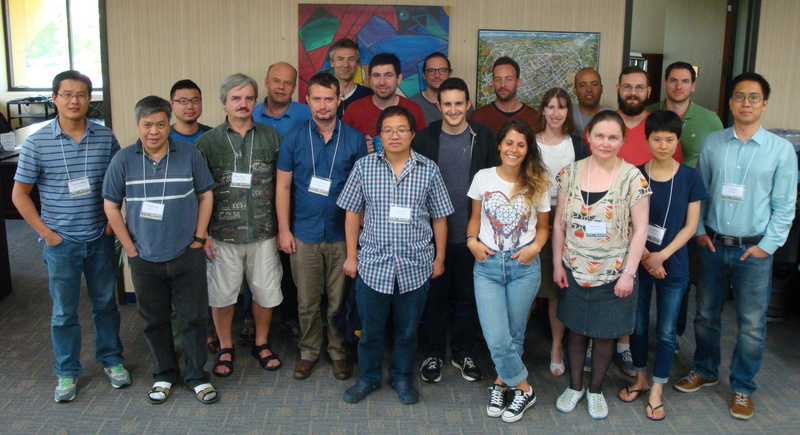The complex Monge-Ampere equation
August 15 to August 19, 2016
at the
American Institute of Mathematics,
San Jose, California
organized by
Zbigniew Blocki,
Mihai Paun,
and Valentino Tosatti
Original Announcement
This workshop will be devoted to the
complex Monge-Ampere equation and its applications in complex
geometry and analysis.
The main topics of the workshop are:
- The Iitaka conjecture: the approach outlined by H. Tsuji for this famous
problem in complex algebraic geometry makes use of a family of complex
Monge-Ampere equations with degenerate right hand side, and the
crux of the matter is understanding the variation of solutions of such
equations.
- The partial $C^0$ estimate: this result states the existence of a uniform
lower bound for the Bergman kernel associated to a power of an ample
Hermitian line bundle, provided that we fix a few natural geometric
invariants, and was recently proved by Donaldson and Sun. As it stands by
now, the proof of this result is using in an essential manner subtle
differential-geometric techniques, namely the Gromov-Hausdorff convergence
theory. On the other hand, it can also be viewed as a quantitative version
of a Fujita-type theorem in algebraic geometry. We intend to analyze
further the analogy between these important achievements in complex
geometry.
- Symmetrization and complex isoperimetric inequalities: the main part of a
famous result of Kolodziej is a local $L^p$-estimate for the complex
Monge-Ampere equation. The proof is very technical, and uses
pluripotential theory. It would interesting to obtain a purely PDE proof
of this result. The work of Talenti, Tso and Trudinger on real operators
suggests that the right approach should be through a symmetrization result
for the complex Monge-Ampere equation, which would follow from
conjectural complex isoperimetric inequalities.
Material from the workshop
A list of participants.
The workshop schedule.
A report on the workshop activities.
A list of open problems.
Papers arising from the workshop:

